Location/Region: Cochabamba, BOL
Industry: Construction materials
Apps implemented: Sales, Inventory, Accounting, Purchase, CRM, Project, Website, Social Marketing, Expenses, Human Resources, and WhatsApp
Software
Replaced: Five different local software
Company size: 10-15
Hosting type: Odoo Online
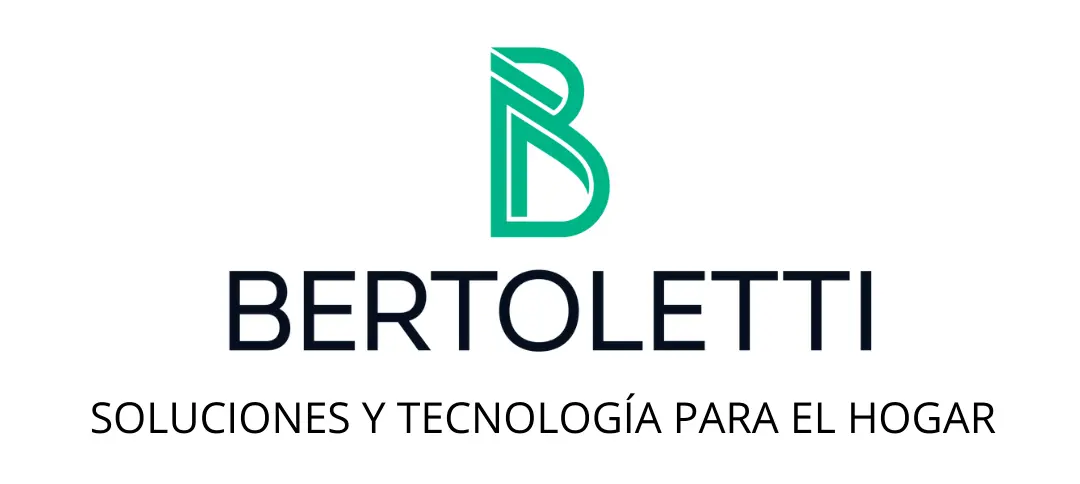
When operational efficiency becomes a constant challenge, having an all-in-one tool makes a difference. This was the case for Bertoletti Importaciones, a Bolivian company that has been committed to European quality construction materials since 2011, and which, since 2022, found in Odoo the ideal platform to centralize and optimize its operations.
Founded in Cochabamba in 2011 by Stefano Bertoletti, current CEO, the company emerged amid a real estate growth context in Bolivia. At that time, the country was experiencing an economic boom and strong migration from rural areas to cities, which fueled significant expansion in housing projects.
“We decided to open our doors offering unique products: high-quality, Italian-made items,” recalls Bertoletti. Their initial offer focused on bathroom finishes (faucets, tiles, and accessories) that, although more expensive than competitors’, stood out for their modern design and durability.
Over time, the company expanded its portfolio. Since 2019, it has also consolidated in the HVAC sector (ventilation, heating, and water heating), an area in which it has experienced strong growth. Today, Bertoletti Importaciones combines its original interior finishing offerings with technical solutions for climate control projects and installations.
"Our first warehouse was a converted garage turned into a micro-logistics hub, the domestic ‘hub’ from which we shipped our first import."

Issues Bertoletti Importaciones Faced Before Implementing Odoo
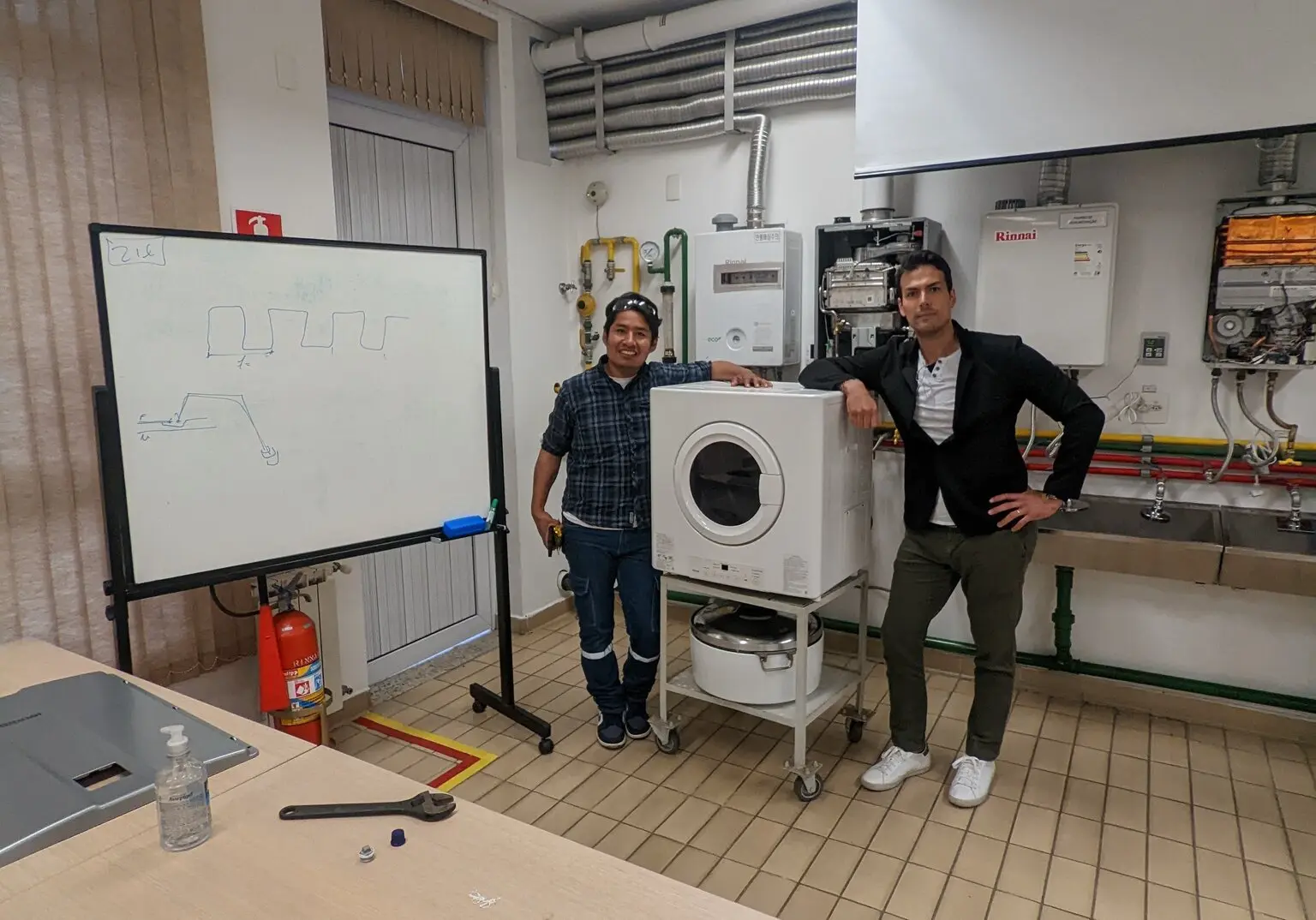
Before adopting Odoo, the company faced multiple administrative challenges. The biggest headache was inventory management. Everything was done manually in Excel, making processes slow, inaccurate, and exhausting.
“An inventory could take 14 days, and in the end, it still didn’t match. Sales were done with handwritten receipts, and we could never reconcile inventory with sales properly.”

In search of solutions, they went through five different systems: from a custom-built software that was never fully implemented, to separate local programs for sales and inventory that didn’t communicate with each other. They even tried the SaaS platform “Tu Gerente,” which promised a CRM and accounting, but its failed integration resulted in the complete loss of critical information.
“It was a monumental mistake. All the sales we made didn’t pull product costs, and everything was lost. It was a terrible headache,” Stefano shares.
Odoo: The Change the Company Needed
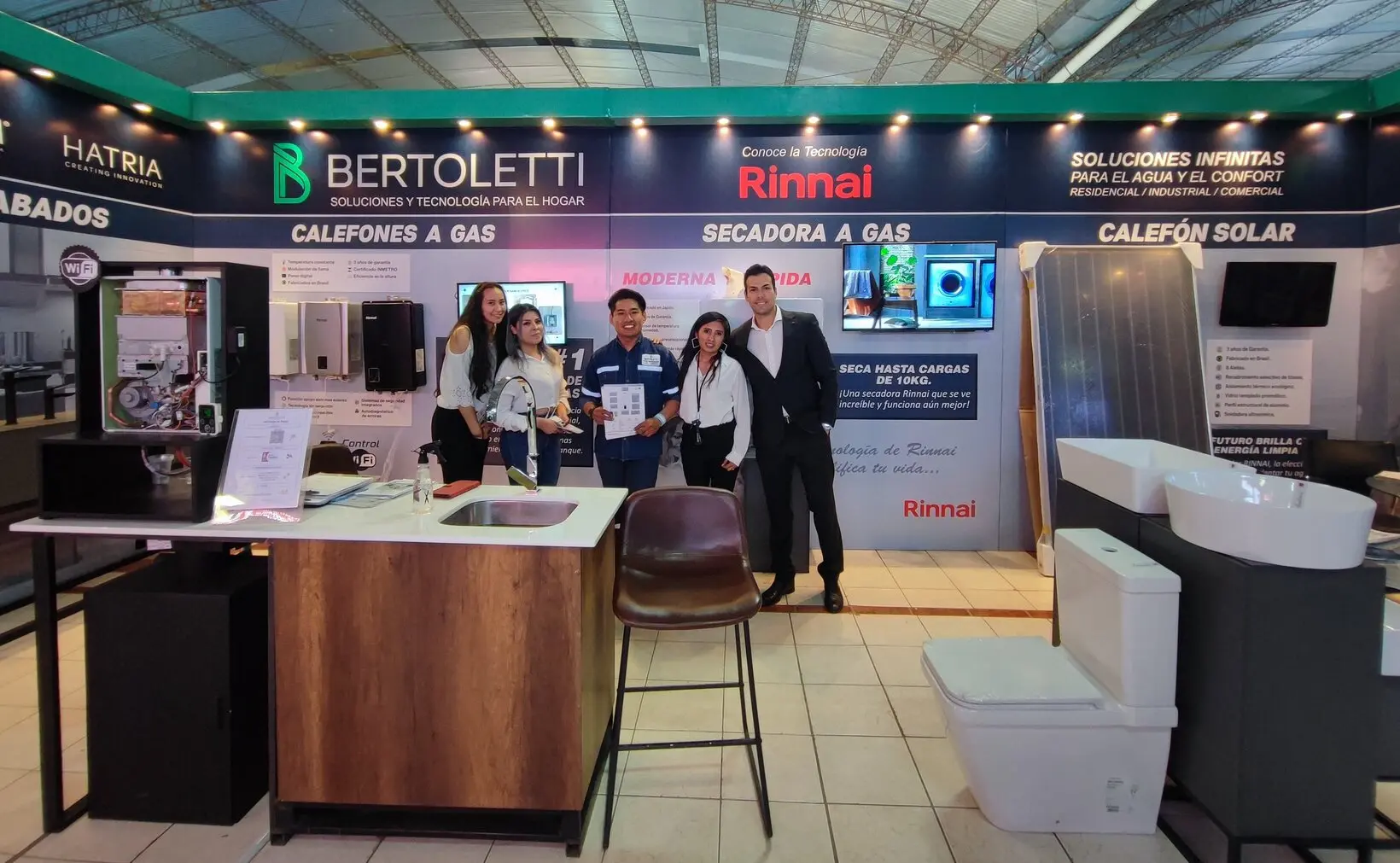
After several failed attempts, Bertoletti discovered Odoo in 2022 through a recommendation from a business colleague. Since then, the implementation has marked a turning point in the importer’s management.
"I said: this is the software I should have had from the beginning. It impressed me. All the apps and modules are fantastic."

Today, the company works with Sales, Inventory, Accounting, Purchase, CRM, Project, Website, Social Marketing, Expenses, Human Resources, and WhatsApp integration. Among the most valued features is the ability to send quotations directly via WhatsApp, with personalized templates that include a cover page, product details, and automatic closing.
Their Operational Playbook
- They register and prioritize each lead (phone, email, WhatsApp, and visits) in the CRM.
- Standardized quotations + follow-up with agenda/reminders.
- Execution and after-sales with tickets and traceability up to invoicing/reconciliation.
The operational flow is fully centralized in Odoo:
Clients (construction companies, distributors, or end consumers) place orders via WhatsApp.
Quotations are generated from the Sales module.
If installation is required, the order moves automatically to Project, where each stage of the job is tracked.
Inventory manages stock in real time, and if a product is unavailable, it triggers a purchase order.
Invoicing is done directly in Odoo, ensuring full traceability.
One of the greatest achievements has been inventory control. Previously, reconciling stock could take half a month; now, thanks to weekly partial inventories, information is always updated and available to respond to large projects in minutes.
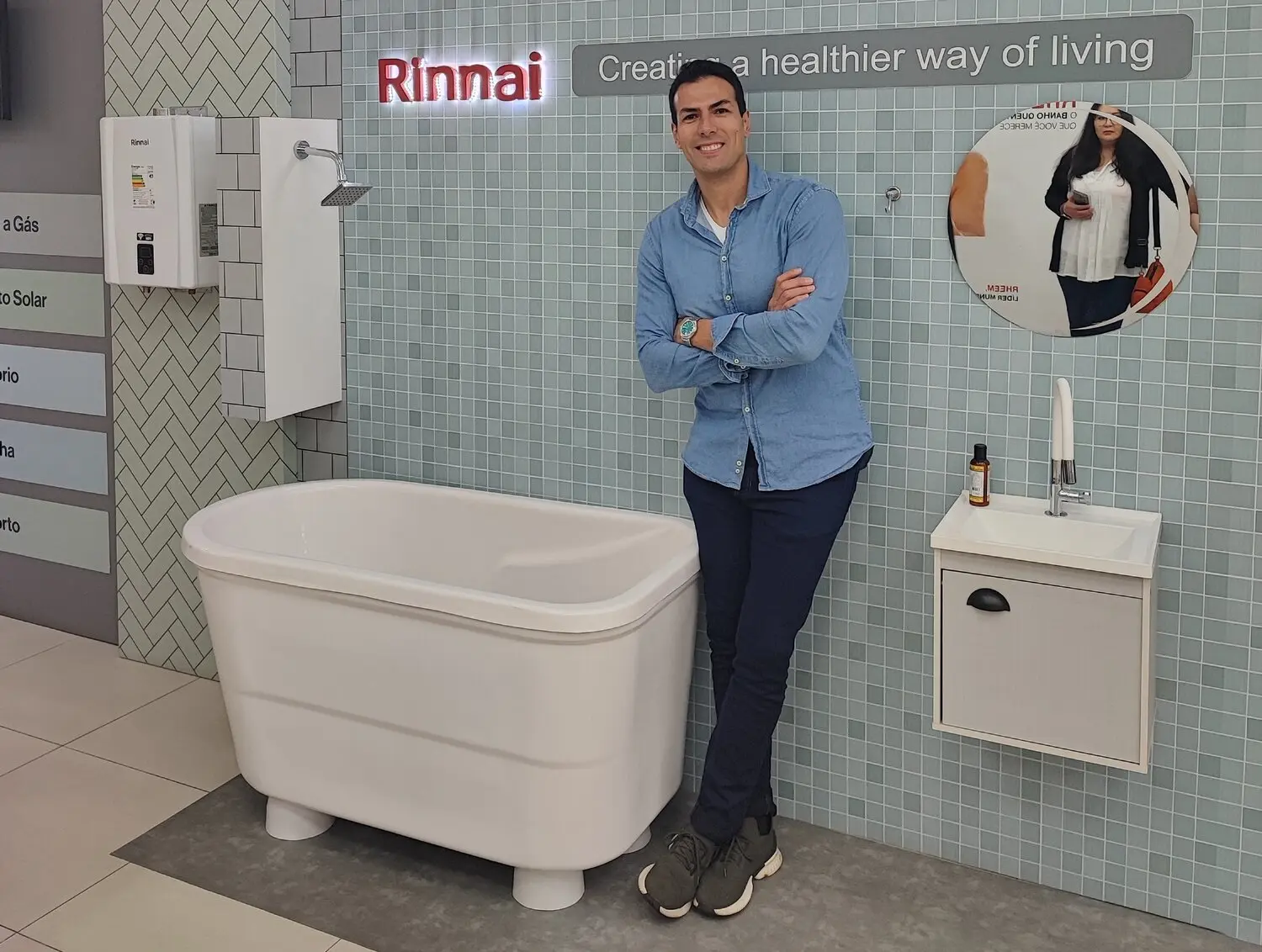
Another major change has been bank integration and automatic reconciliation. This eliminated common errors in electronic payments and kept internal accounting always up to date, something Bertoletti says many companies in Bolivia still struggle with. “We only outsource accounting for tax filings because everything else is managed within Odoo,” he explains.
In an informal market where up to 70% of sales are lost due to lack of follow-up, the CRM has been crucial. Now, the sales team has a clear agenda, call reminders, and a complete customer history. This has significantly increased retention and opportunity conversion.
The Project app has also enabled a leap in service quality. Each installation or claim is managed in phases until resolution, and the company plans to strengthen this process with the future implementation of the Customer Service Tickets module.
Their communication is omnichannel: they combine calls, email, WhatsApp, and technical visits, depending on the case. A lead can start on WhatsApp, continue with a call or visit, and close with a formal proposal via email. The key is continuity of the process until installation and invoicing.
What’s Next for Bertoletti Importaciones
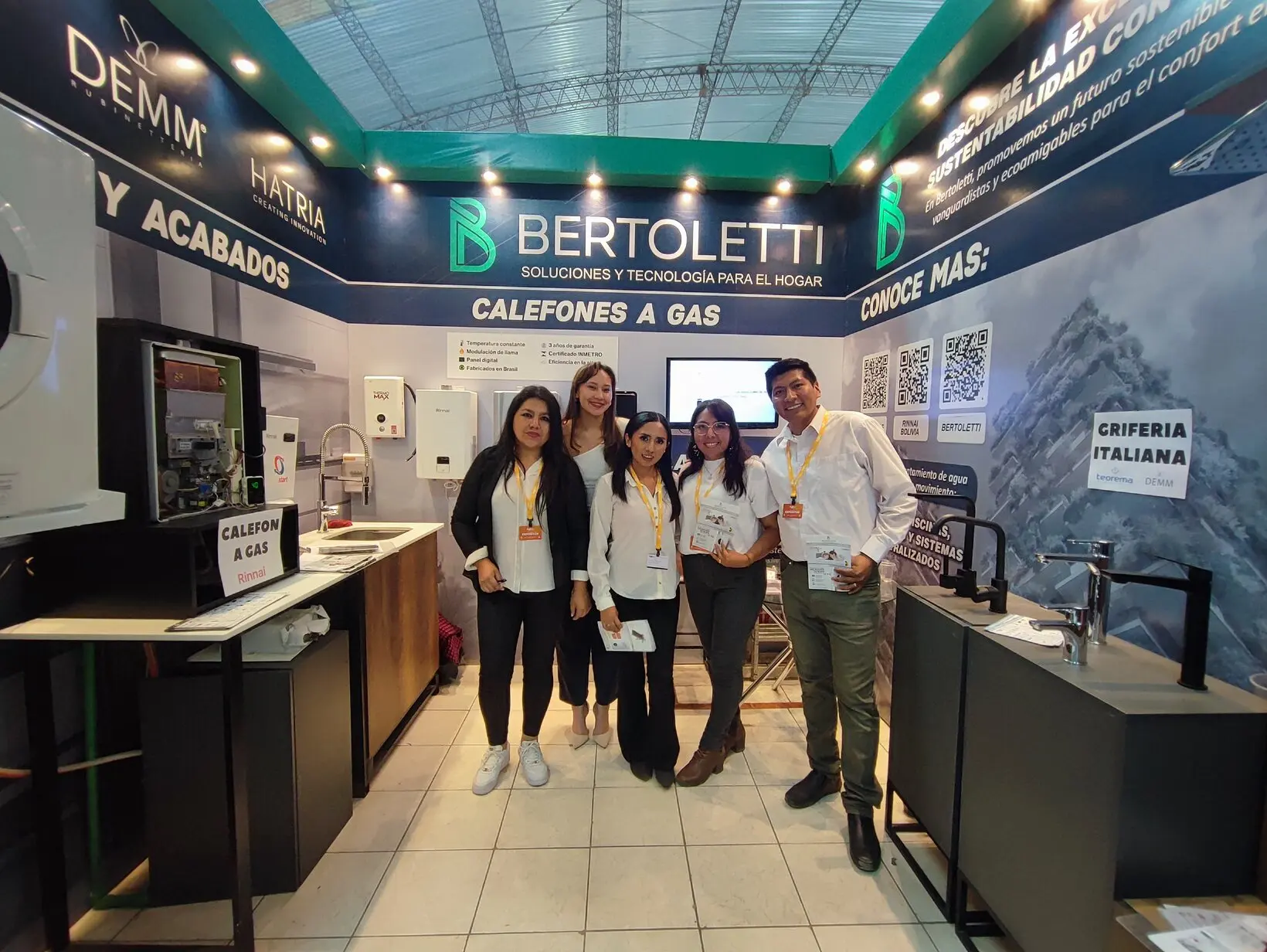
The company’s immediate future is focused on launching its own product brands, a key strategy to face the shortage of dollars and the devaluation of the Bolivian market.
This step involves increased use of the Inventory, Purchase, and Project apps, as the company will no longer receive fully finished products and will need to manage the supplier chain and assembly more actively.
Additionally, the company plans to implement the online store, the Tickets module, and strengthen digital communication with clients through its website and online channels.
Some Final Lessons for SMEs
- Discipline in CRM: active agendas and reminders prevent invisible losses.
- Weekly partial inventories: fewer adjustments, more confidence in stock.
- Automatic bank reconciliation: finances up to date for better decision-making.
- Standardized after-sales (tickets/warranties): the experience after selling also builds the brand.
The experience of Bertoletti Importaciones shows how a small company can achieve efficiency and growth by adopting a flexible and comprehensive ERP like Odoo. If your business also faces inventory, sales tracking, or accounting reconciliation challenges, it may be time to switch to a platform that centralizes everything. As Stefano Bertoletti concludes: “This is the software I should have had from the beginning.”

